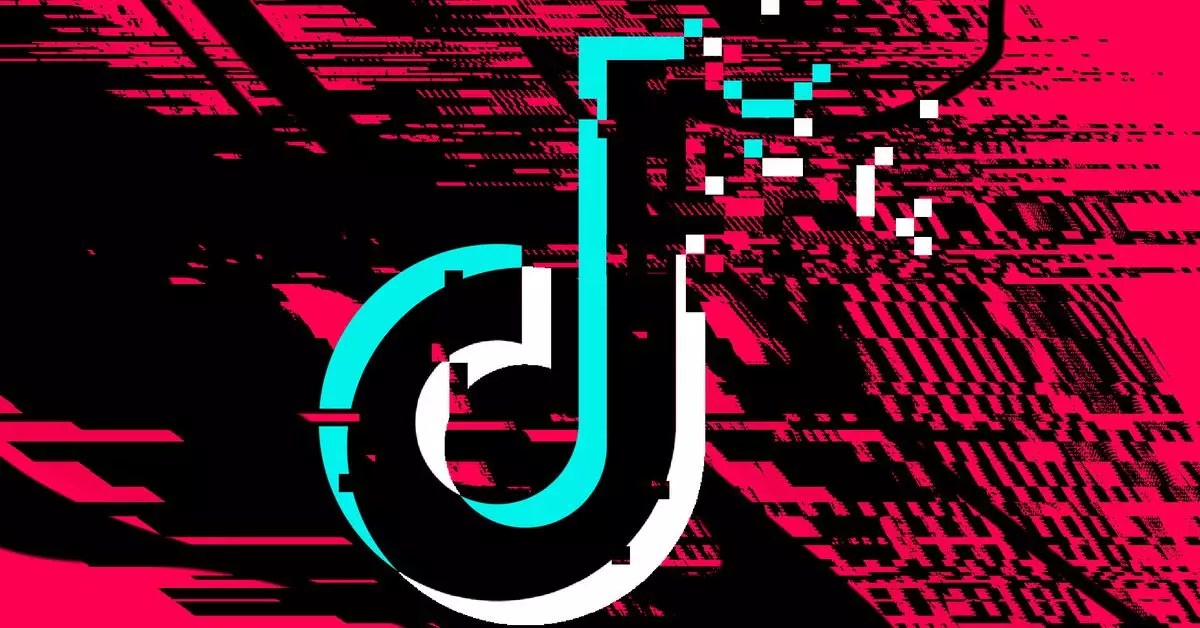As tensions between technology and national security escalates, the fate of TikTok hangs precariously in the balance. The popular social media platform, known for its short-form videos, is now at the mercy of government decisions and looming deadlines. With the Biden administration on the cusp of a changeover to Donald Trump’s leadership, TikTok has publicly declared its intent to shut down operations in the United States if immediate action isn’t taken by the outgoing administration. This situation epitomizes the increasingly complex relationship between technology companies and government regulation, highlighting the urgent need for clarity in policymaking.
TikTok’s statement of intention to “go dark” reflects a desperate plea for intervention amid legal and regulatory pressures tied to its Chinese parent company, ByteDance. According to the platform, it requires a concrete assurance from its essential service providers, such as Apple and Google, that they will remain free from legal repercussions—specifically concerning the enforcement of a law that would bar the app’s operation in the U.S. This demand for reassurance marks a critical juncture for the app as it confronts the reality of forced cessation amidst growing skepticism over data security.
The impending shutdown stems from a recent Supreme Court ruling that upholds a law mandating the divestment of ByteDance’s ownership in TikTok if it wants to continue operating within U.S. borders. The ruling has been seen as a significant victory for those advocating for stringent regulations on foreign-owned tech companies, particularly those perceived as threats to national security. As the deadline approaches, TikTok finds itself in a volatile environment, contending not only with legal battles but also with the global political dynamics shifting under its feet.
Complicating matters for TikTok is the political landscape that surrounds it. While President Biden’s administration has hinted at the possibility of allowing TikTok to continue operating under American ownership, the White House has also signaled that the resolution of this issue is likely to fall to the incoming Trump administration. Having recently touted conversations with China regarding a multitude of topics, including TikTok, Trump’s involvement could provide a unique avenue for the company, albeit fraught with its uncertainties.
This political circus highlights the challenges tech companies face when navigating the intersection of business and government. Just days before the switch of administration, prominent political figures who initially supported the legislation appear to be reconsidering their stance. This flip-flop raises questions about the efficacy and foresight of such sweeping regulatory measures. Is there a possibility of compromising solutions, or will TikTok be forced into an all-or-nothing scenario?
The implications of a potential TikTok ban extend beyond the app itself; it ignites a broader conversation regarding national security measures and individual freedoms. Attorney General Merrick Garland’s firm stance against giving authoritarian regimes access to sensitive American data underscores a prevailing narrative that prioritizes national security. However, this perspective raises questions about the sacrifice of individual freedoms in pursuit of data protection.
Policymakers must navigate the precarious balance between safeguarding citizens’ information from foreign entities and ensuring access to platforms that foster creativity and connection. As public scrutiny intensifies and the clock ticks down, the prospect of a TikTok shutdown serves as a litmus test for the United States’ approach to digital equity and security.
As January 19th approaches, TikTok’s future feels more uncertain than ever. Its leadership is in limbo, waiting for critical signals from the government that may never come. If the app does ultimately go offline, the repercussions will be felt not only by its millions of users but also by the tech industry at large, which will be left grappling with the ramifications of an inexorable divide between technological innovation and governmental regulation.
The TikTok saga serves as a cautionary tale about the fragility of tech companies operating under the vigilant gaze of government oversight, illustrative of the tension between economic opportunity and national security. With the digital landscape constantly evolving, it remains to be seen whether the imminent decisions made by the government will mark a new chapter in tech regulation or spiral into a cycle of ongoing discord.


Leave a Reply